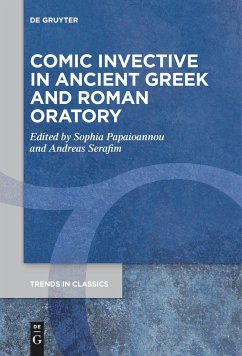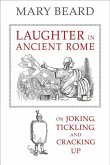This volume acknowledges the centrality of comic invective in a range of oratorical institutions (especially forensic and symbouleutic), and aspires to enhance the knowledge and understanding of how this technique is used in such con-texts of both Greek and Roman oratory. Despite the important scholarly work that has been done in discussing the patterns of using invective in Greek and Roman texts and contexts, there are still notable gaps in our knowledge of the issue. The introduction to, and the twelve chapters of, this volume address some understudied multi-genre and interdisciplinary topics: first, the ways in which comic invective in oratory draws on, or has implications for, comedy and other genres, or how these literary genres are influenced by oratorical theory and practice, and by contemporary socio-political circumstances, in articulating comic invective and targeting prominent individuals; second, how comic invective sustains relationships and promotes persuasion through unity and division; third, how it connects with sexuality, the human body and male/female physiology; fourth, what impact generic dichotomies, as, for example, public-private and defence-prosecution, may have upon using comic invective; and fifth, what the limitations in its use are, depending on the codes of honour and decency in ancient Greece and Rome.








